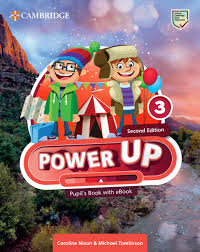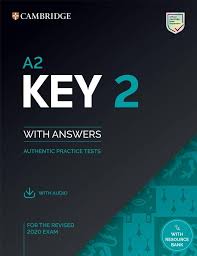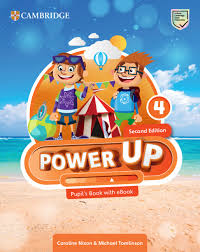Key Features of Power Up 4 (Second Edition):
Advanced Literacy Skills:
Reading Comprehension: Students will read more challenging texts, such as chapter books, informative articles, and poetry. They’ll focus on analyzing themes, understanding figurative language (e.g., metaphors, similes), and identifying different literary devices.
Critical Thinking: There will be an emphasis on comparing and contrasting information, making inferences, and discussing the author’s purpose and tone.
Writing: Students will write more detailed and organized essays, reports, and narratives. They’ll work on structuring paragraphs with clear topic sentences, supporting details, and conclusions. Students will also learn to incorporate evidence into their writing and cite sources appropriately.
Mathematics:
Multiplication and Division of Larger Numbers: Students will perform multiplication and division with multi-digit numbers and work on long division.
Fractions, Decimals, and Percentages: There will be a focus on converting between fractions, decimals, and percentages, as well as solving problems that involve operations with these forms.
Geometry: In addition to advanced properties of shapes, students will learn about angles, symmetry, and more complex geometric figures (e.g., parallelograms, trapezoids).
Measurement and Data: Students will work with units of measurement (such as converting between units), as well as collecting and interpreting data using graphs and charts (e.g., bar graphs, line graphs).
Critical Thinking and Problem Solving:
Word Problems and Logic: Students will continue working with word problems that require them to apply multiple mathematical operations. They will solve problems that involve variables and equations.
Problem-Solving Strategies: Students will learn and apply strategies like working backward, making a table, and using estimation to find solutions to more complex problems.
Scientific Method: There may also be an introduction to basic scientific inquiry methods, encouraging students to formulate hypotheses, conduct experiments, and analyze results.
Social-Emotional Learning (SEL):
Decision Making: At this stage, students will explore decision-making strategies, including the consequences of their choices and how to think critically about various options.
Social Awareness and Empathy: There will be an emphasis on understanding others’ perspectives, including discussing diversity and developing empathy for people with different experiences or backgrounds.
Goal-Setting and Motivation: Students will learn to set personal and academic goals, monitor their progress, and motivate themselves to achieve those goals.
Interactive and Project-Based Learning:
Hands-On Projects: Students will engage in projects that require critical thinking, collaboration, and application of their learning. This might include science experiments, historical research, or math-related design challenges.
Group Activities and Presentations: Students will work together to present findings or solutions, fostering public speaking skills, teamwork, and collaboration.
Teacher and Parent Support:
Lesson Plans and Support Resources: Teachers and parents will have access to comprehensive lesson plans, activity sheets, additional exercises, and real-world examples that reinforce key concepts.
Assessments and Feedback: Regular quizzes, tests, and informal assessments will track students’ progress. Teachers can use these tools to adjust instruction as needed to ensure all students are mastering the content.
Power Up – Second Edition 4 Resrouces
Pupil’s Book.pdf
Activity Book.pdf
Teacher’s Book.pdf
CEQs Exam Support Links.pdf
Power Up First Edition 4 Literature Spreads Download All.zip
Test Generator.zip
Tests.zip
Worksheets.zip
A2 Exam Correlation Chart.pdf
Activity Book Answer Key.pdf
Audioscripts and Video Scripts.zip
CEFR Correlation Chart.pdf
Class Audio.zip
Festivals.zip
Flashcards and Wordcards.zip
Grammar Workbook.zip
Home Booklet.zip
Letters to Families and Caregivers.pdf
Videos and Animations.zip
Sample Power Up Second Edition 4 Activity Book.pdf
Sample Power Up Second Edition 4 Pupil s Book.pdf
Sample Power Up Second Edition 4 Teacher s Book.pdf
Original price was: $20.00.$11.50Current price is: $11.50.
Buy Now










Reviews
There are no reviews yet.